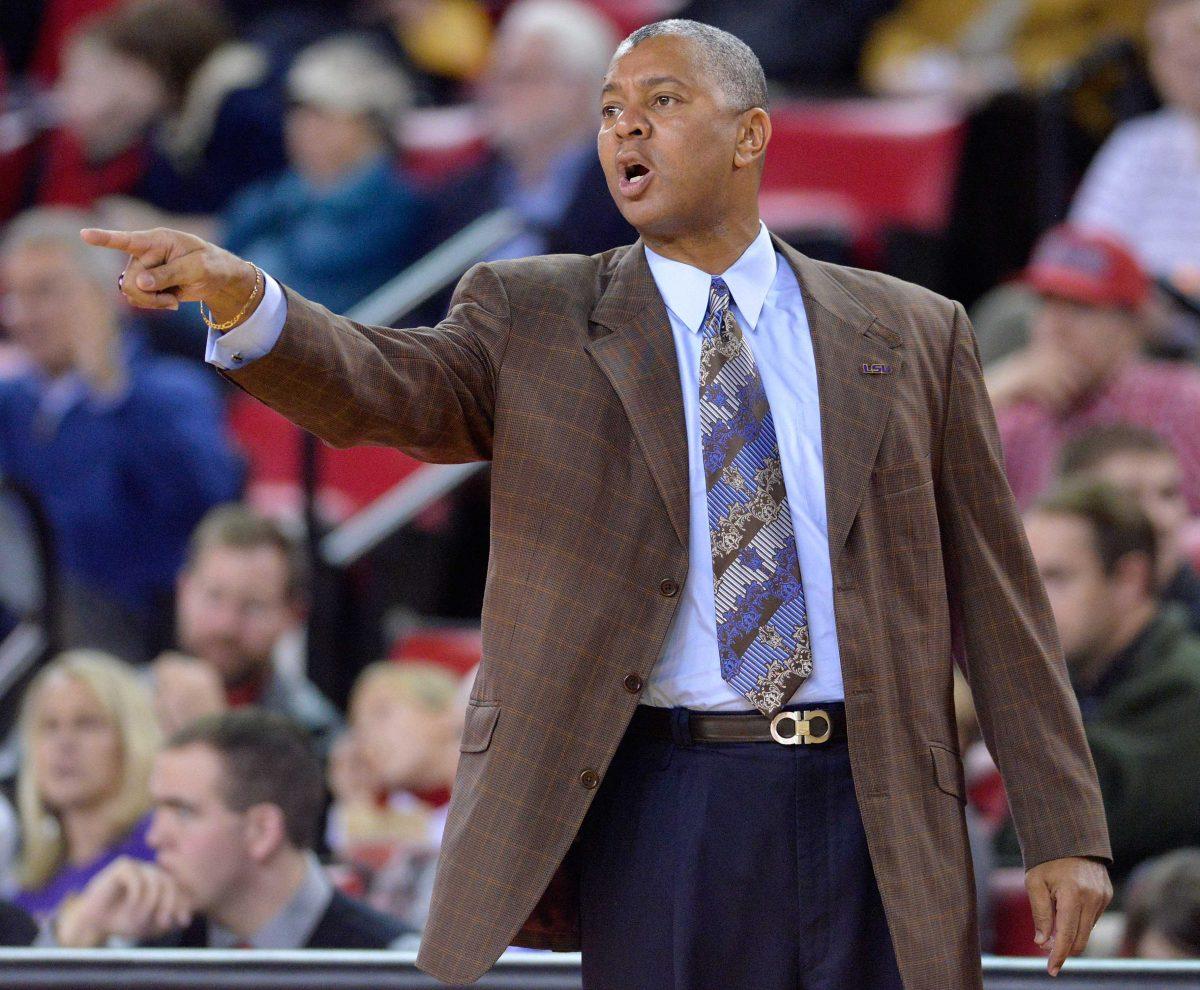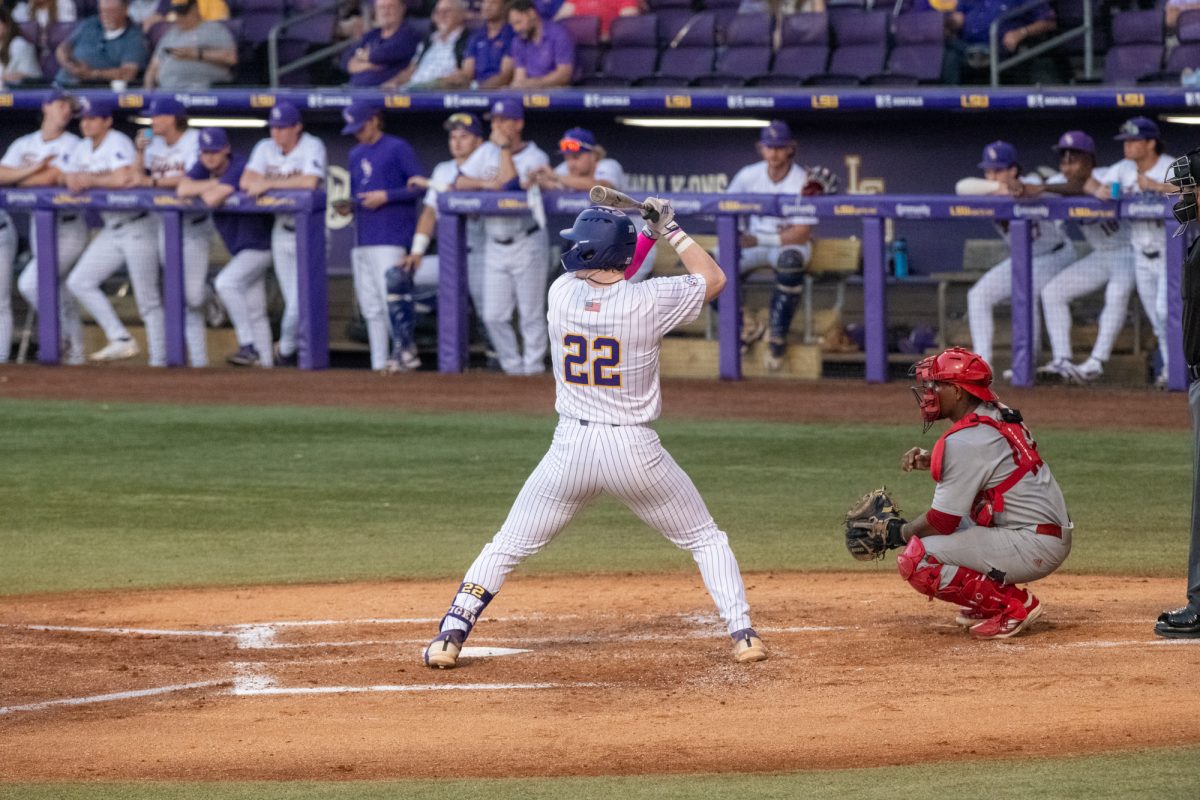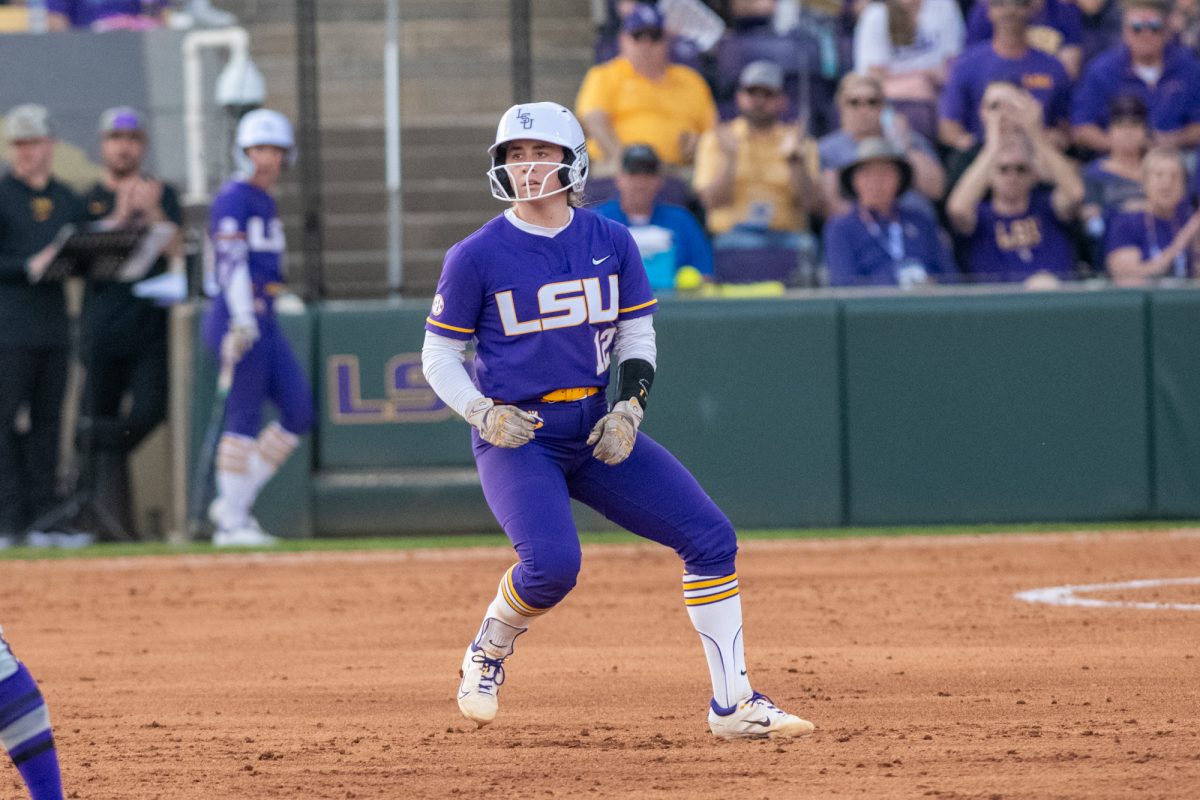Qualifying for a postseason tournament is the conventional validation for a college basketball team, but coach Johnny Jones and the LSU men’s squad would beg to differ.
In the first year at the helm of his alma mater, Jones led the Tigers to a 19-12 record and a .500 mark in Southeastern Conference play. The Tigers were a streaky and resilient bunch with a penchant for making late-game comebacks behind Jones’ up-tempo style.
Though the Tigers were not awarded a bid to a major postseason tournament, they laid the groundwork for future teams under Jones’ direction.
“I’m really proud of our guys and the type of season that they had,” Jones said in March. “From start to finish, they gave a tremendous effort. Something, as a coach, that you look for from your team is how hard they’re playing and buying in and the passion that they have an opportunity to play with.”
LSU started the season with a 9-2 nonconference record featuring a raucous crowd cheering on a come-from-behind home win against Seton Hall. The Tigers displayed their never-say-die attitude at Marquette, where they rallied back from a 21-point deficit, but eventually fell 84-80.
The Tigers entered the revamped 18-game SEC docket looking to improve on their 7-9 league record from 2012, but they struggled coming out of the gates. The team dropped its first four conference games, and three of the defeats came against teams that finished in the bottom half of the SEC.
But the Tigers heated up after finally notching their first conference win against Texas A&M, winning six out of eight contests. The streak included a 73-70 upset of then-No. 17 Missouri in Baton Rouge, which many viewed as the first signature win of the Jones era.
While LSU was enjoying success as a team, sophomore guard Anthony Hickey spent the majority of the season as the national steals leader, and sophomore forward Johnny O’Bryant III emerged as a powerful post presence. O’Bryant poured in 30 points in LSU’s Feb. 14 victory against South Carolina, and he racked up 15 double-doubles en route to a First Team All-SEC selection by the league’s coaches.
Senior guard Charles Carmouche led the Tigers through the last leg of the season, eclipsing the 20-point mark five times in the final nine games. Carmouche led the way in LSU’s 97-94 triple overtime win against Alabama in which the Tigers overcame a 10-point deficit in the final three-and-a-half minutes of regulation.
LSU earned the No. 9 seed in the SEC Tournament and beat No. 8 seed Georgia in the second round before getting dismantled by top-seeded Florida in the quarterfinals.
When LSU’s name wasn’t called by either the NCAA Tournament or the National Invitation Tournament selection committees, Jones quickly decided to forgo competing in any other postseason tournaments, such as the College Basketball Invitational.
“The NCAA and the NIT are two big and competitive tournaments that are out there,” Jones said. “I think it really depends on the makeup of your team and what you’re trying to get accomplished at that time. … The way that this team is made up, if it wasn’t one of those two, it probably wouldn’t be beneficial to keep trying to move forward just to be in postseason play.”
Jones also hauled in a consensus top-10 recruiting class highlighted by five-star forward Jarrell Martin. The first-year coach continued to beef up his front court by signing Australian seven-footer Darcy Malone and junior college transfer center John Odo.
O’Bryant made a splash of his own by calling a news conference about a month after the season ended to announce his return to the team for his junior season. The sophomore forward made his announcement amid speculation he would declare for the NBA Draft.
“My family and I just thought it was the best decision for me to stay,” O’Bryant said. “We will have a great team next year. I will have better opportunities to grow as a player, so we decided to stay.”








